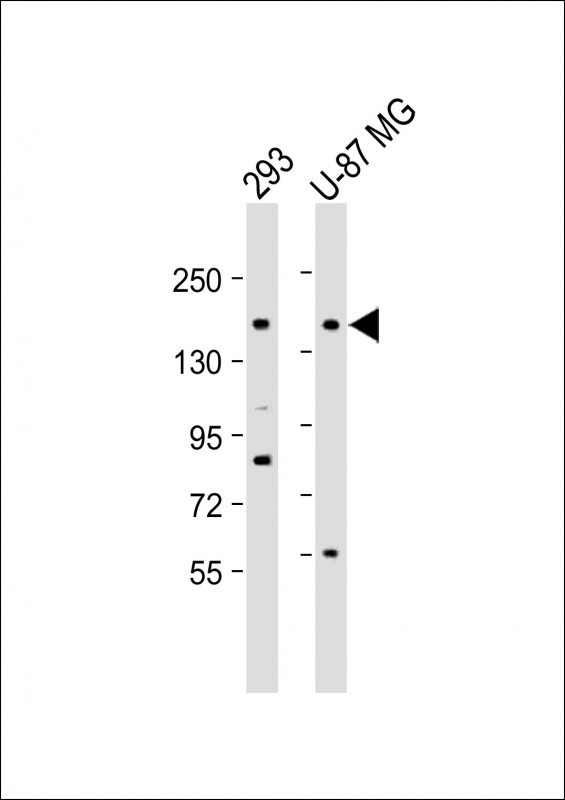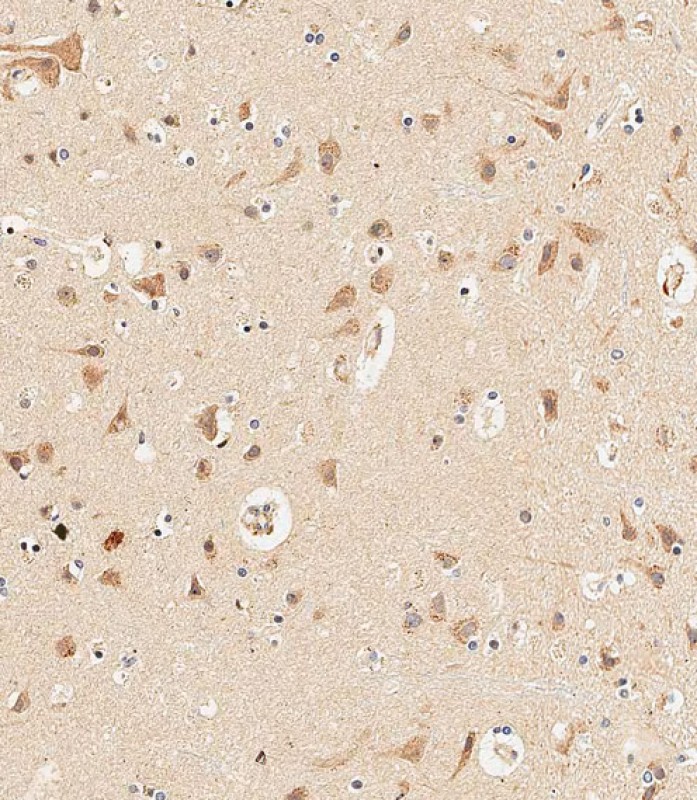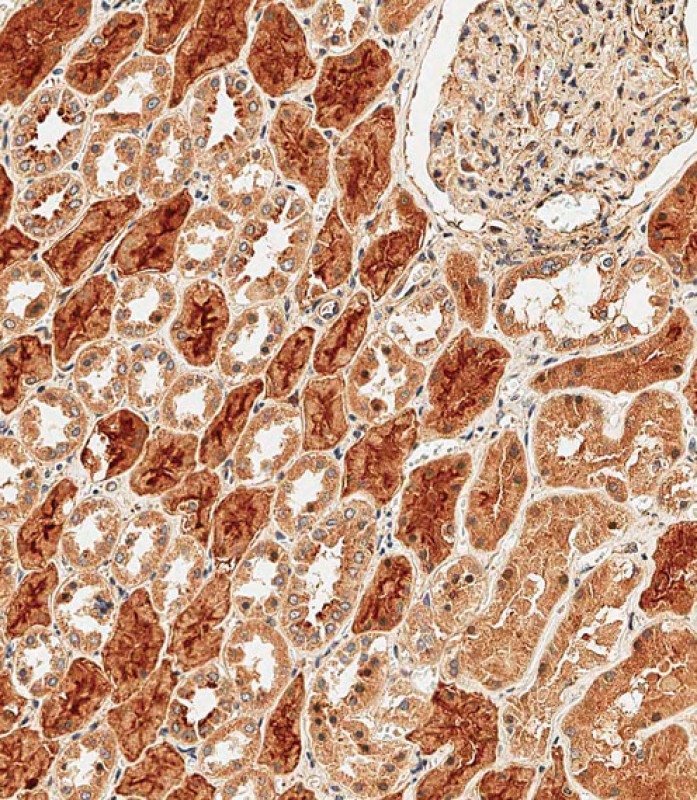PCDH9 Antibody (C-term)
Affinity Purified Rabbit Polyclonal Antibody (Pab)
- SPECIFICATION
- CITATIONS
- PROTOCOLS
- BACKGROUND

Application
| IHC-P-Leica, WB, E |
|---|---|
| Primary Accession | Q9HC56 |
| Other Accession | NP_982354.1, NP_065136.1 |
| Reactivity | Human |
| Host | Rabbit |
| Clonality | Polyclonal |
| Isotype | Rabbit IgG |
| Calculated MW | 136064 Da |
| Antigen Region | 1018-1046 aa |
| Gene ID | 5101 |
|---|---|
| Other Names | Protocadherin-9, PCDH9 |
| Target/Specificity | This PCDH9 antibody is generated from rabbits immunized with a KLH conjugated synthetic peptide between 1018-1046 amino acids from the C-terminal region of human PCDH9. |
| Dilution | IHC-P-Leica~~1:500 WB~~1:2000 E~~Use at an assay dependent concentration. |
| Format | Purified polyclonal antibody supplied in PBS with 0.09% (W/V) sodium azide. This antibody is purified through a protein A column, followed by peptide affinity purification. |
| Storage | Maintain refrigerated at 2-8°C for up to 2 weeks. For long term storage store at -20°C in small aliquots to prevent freeze-thaw cycles. |
| Precautions | PCDH9 Antibody (C-term) is for research use only and not for use in diagnostic or therapeutic procedures. |
| Name | PCDH9 |
|---|---|
| Function | Potential calcium-dependent cell-adhesion protein. |
| Cellular Location | Cell membrane; Single-pass type I membrane protein |

Thousands of laboratories across the world have published research that depended on the performance of antibodies from Abcepta to advance their research. Check out links to articles that cite our products in major peer-reviewed journals, organized by research category.
info@abcepta.com, and receive a free "I Love Antibodies" mug.
Provided below are standard protocols that you may find useful for product applications.
Background
This gene belongs to the protocadherin gene family, a subfamily of the cadherin superfamily. The mRNA encodes a cadherin-related neuronal receptor that localizes to synaptic junctions and is putatively involved in specific neuronal connections and signal transduction. Sharing a characteristic with other protocadherin genes, this gene has a notably large exon that encodes six cadherin domains and a transmembrane region. Two alternatively spliced transcript variants encoding distinct isoforms have been found for this gene.
References
Bailey, S.D., et al. Diabetes Care 33(10):2250-2253(2010)
Rose, J.E., et al. Mol. Med. 16 (7-8), 247-253 (2010) :
Talmud, P.J., et al. Am. J. Hum. Genet. 85(5):628-642(2009)
Nollet, F., et al. J. Mol. Biol. 299(3):551-572(2000)
Yagi, T., et al. Genes Dev. 14(10):1169-1180(2000)
If you have used an Abcepta product and would like to share how it has performed, please click on the "Submit Review" button and provide the requested information. Our staff will examine and post your review and contact you if needed.
If you have any additional inquiries please email technical services at tech@abcepta.com.













 Foundational characteristics of cancer include proliferation, angiogenesis, migration, evasion of apoptosis, and cellular immortality. Find key markers for these cellular processes and antibodies to detect them.
Foundational characteristics of cancer include proliferation, angiogenesis, migration, evasion of apoptosis, and cellular immortality. Find key markers for these cellular processes and antibodies to detect them. The SUMOplot™ Analysis Program predicts and scores sumoylation sites in your protein. SUMOylation is a post-translational modification involved in various cellular processes, such as nuclear-cytosolic transport, transcriptional regulation, apoptosis, protein stability, response to stress, and progression through the cell cycle.
The SUMOplot™ Analysis Program predicts and scores sumoylation sites in your protein. SUMOylation is a post-translational modification involved in various cellular processes, such as nuclear-cytosolic transport, transcriptional regulation, apoptosis, protein stability, response to stress, and progression through the cell cycle. The Autophagy Receptor Motif Plotter predicts and scores autophagy receptor binding sites in your protein. Identifying proteins connected to this pathway is critical to understanding the role of autophagy in physiological as well as pathological processes such as development, differentiation, neurodegenerative diseases, stress, infection, and cancer.
The Autophagy Receptor Motif Plotter predicts and scores autophagy receptor binding sites in your protein. Identifying proteins connected to this pathway is critical to understanding the role of autophagy in physiological as well as pathological processes such as development, differentiation, neurodegenerative diseases, stress, infection, and cancer.





